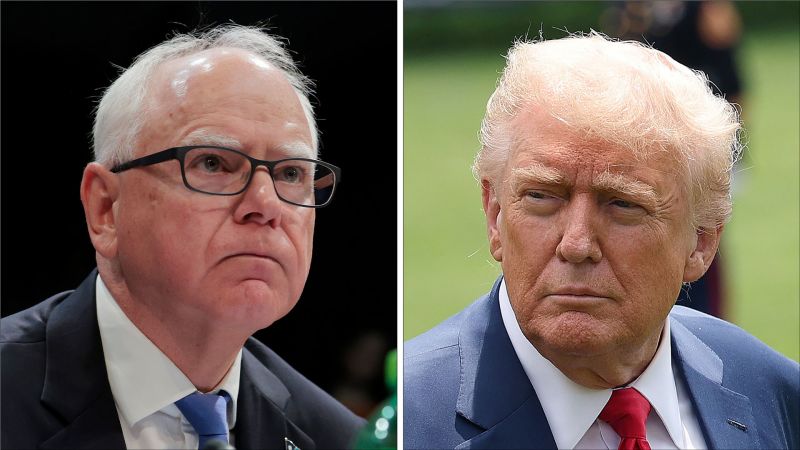President Donald Trump has expressed reluctance to reach out to Minnesota Governor Tim Walz following the shooting of two state Democratic lawmakers and their spouses over the weekend. Trump cited his disinterest in contacting Walz, attributing his stance to baseless claims linking Walz to the shooter. The suspect, Vance Boelter, appointed by Walz in 2019, was arrested after a significant manhunt and faces multiple charges. Boelter, known for his conservative views and opposition to abortion rights, had a list of targets primarily comprising Democrats or individuals associated with Planned Parenthood.
Despite Trump’s criticism of Walz, a spokesperson for the governor emphasized that the tragedy transcends political dynamics, focusing on supporting the affected families and healing the state. While Trump initially showed reluctance to contact Walz, he later indicated a possibility of reaching out in response to the targeted attacks. CNN reported that Walz had discussions with Vice President JD Vance to acknowledge the collaboration between federal law enforcement and Minnesota public safety officials.
The evolving narrative surrounding the shooting incidents underscores the complex interplay between political rhetoric, law enforcement efforts, and the broader implications for governance and public safety. Trump’s shifting statements and Walz’s measured response highlight the delicate balance between political discourse and the imperative of addressing crises with unity and resilience.

